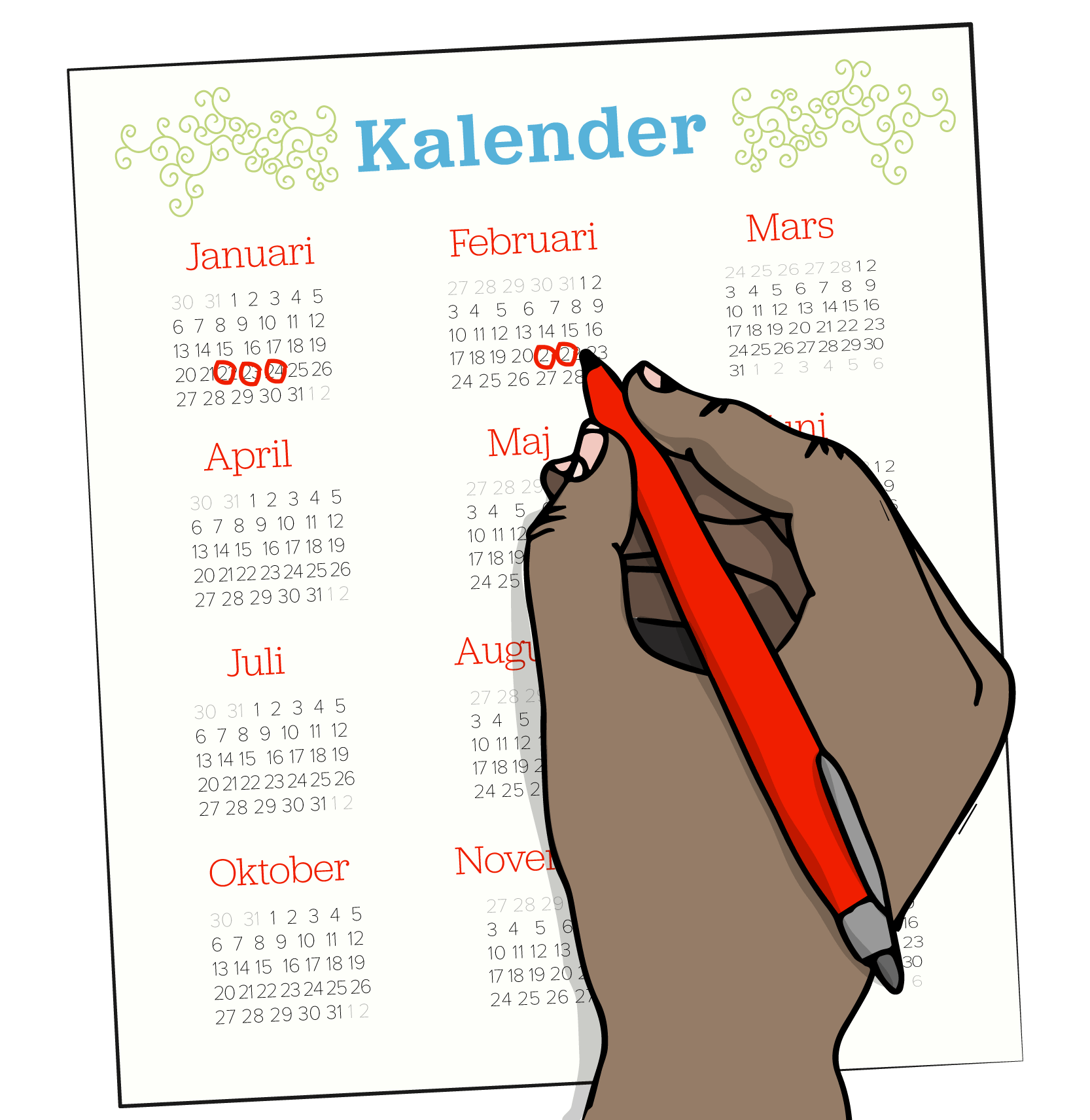Menstrual period
Mens - engelskaA menstrual period, or period, is blood that comes from the uterus and out of the vagina about once a month.

When will I get my first period?
The age when your first period comes differs from person to person. Most people get their first period sometime between the ages of 11 and 14. You could start getting your period when you are 9 or 16 without anything being wrong. Contact the school nurse, a youth guidance centre or a healthcare centre if you haven't started your period by the time you are 16 years of age.
How often and how much will I bleed?
Your period usually comes once a month. But it is common for the time between periods to be shorter or longer, especially during the first year.
Most people have their period for three to six days and bleed about 50 millilitres of blood. But it's different from person to person.
The colour of the period tends to be red for the first few days and brown for the last few days.
Menstrual cramps
It is common to have stomach pain during the first few days of your period. Some people have pain in their back, thighs or head.
Here are some things you can try to relieve the pain:
- Exercise or be more active doing something you enjoy. For example, you could go jogging, go for a walk or dance.
- Place something warm on the area where it hurts.
- Take over-the-counter painkillers.

Feeling bad before your period
It is common to feel sad or irritated in the days before your period starts. This is called PMS. This is how PMS can feel:
- You feel sad or angry.
- You are tired.
- Your breasts ache.
- You are hungrier than usual.
Things usually feel better once your period starts. It may help if you take it easy and eat well. It is also a good idea to be active.
You can get help if your period is difficult
Sometimes you might need help with something related to your period. In that case, you can contact the school nurse (skolsköterskan), a youth guidance centre (ungdomsmottagning) or a health clinic. These are things you can get help with:
- You bleed a lot. In that case, you can get help so that you bleed less.
- Your period has stopped coming. You can get help to find out why.
- You have cramps and over-the-counter painkillers don't help. You can get a prescription for medicines that will help.
- Your period makes you feel really sick. You can get a prescription for medicines that will help.
- You want to move the time of your period or avoid it entirely. You can get help with that.
- Your vaginal area hurts, or your period is very difficult because you have been circumcised. You can get help.
- You have questions about your period. A midwife can answer them.
A video about menstruation by RFSU
This is a video by RFSU.
This is a video by RFSU.